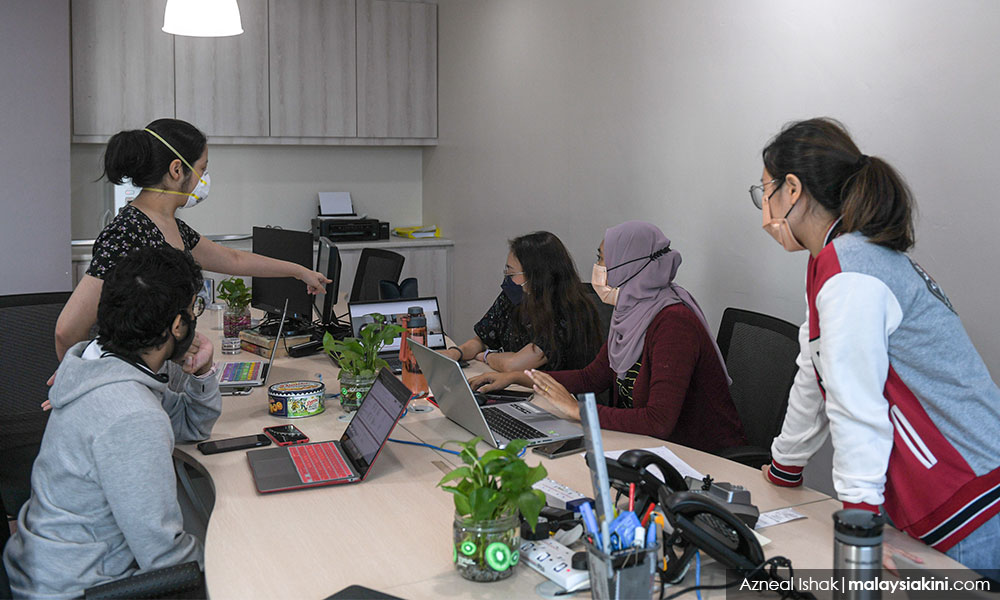Employers and their staff who enrol in the government's progressive wage policy next year will have to show proof of their commitment.
Economy Minister Rafizi Ramli said employers have to prove that they actually pay the increased salary, and workers who benefit from the pilot project will also have to abide by certain upskilling requirements.
This is because the government wants to ensure that the programme will yield its intended result - which is to increase the country's productivity.
"It is just not in the best interest of the company that productivity goes up, it is also in the best interest of the government to validate and satisfy ourselves that this programme with this kind of allocation actually does yield better productivity," he told a press conference in Parliament.
"We have to see what upskilling is required. That is why the Economy Ministry and Human Resources Ministry need to see the big picture. How do we plan for their upskilling?
"They (employees) have to go through that. At the end of the year, all the records have to be completed. If they do not abide by the upskilling, then they are dropped from the scheme," he added.
Rafizi held the press conference right after he tabled the government's white paper in the Dewan Rakyat, which outlined its plans for a progressive wage policy that would be implemented next year, with a proposal that it targets workers earning less than RM5,000 per month.
Opt-in for the policy is on a voluntary basis, but it would come with financial incentives for participating employers.
Rafizi proposed that employers get a fixed incentive of up to RM200 per month for entry-level workers and up to RM300 per month for workers for a period of 12 months from the government.
Increments, he said, would be tied to workers’ productivity and skills.
'Oversubscription'
Rafizi said the government decided to go with voluntary opt-in instead of mandatory enrolment due to the economic situation.
With 97 percent of companies in the country being micro, small, and medium enterprises, he said the ministry believed the country's economy will not be able to absorb the new policy should they push for a mandatory ruling.
The minister also refuted the notion that the programme would receive opposition from employers.

Instead, Rafizi expressed confidence that many employers would participate based on feedback the ministry had received from engagement sessions with the Malaysian Employers Federation and chambers of industry.
"From initial feedback and engagement sessions, I am not worried about lack of participation.
"Instead, I am concerned that this programme might see oversubscription," he said.
According to Rafizi, this is why the ministries would have to properly craft the guiding principles for its enrollment.
Among the considerations include a sector's capability to increase pay for its workers, gap size between current salary and workers' skills, emphasis on sectors of focus in the government's economic restructuring effort, and how critical a sector needs new talents.

In terms of financial impact, Rafizi said they estimate the pilot project involving 1,000 companies next year would involve costs of between RM20 million and RM30 million.
The Economy Ministry has already set aside the amount, he added.
However, the final numbers would only be known after the final selection of companies for the project.
"... It will not cost more than RM30 million allocation.
"That's why I think it is very doable. We want to do it first and see the feedback, especially to resolve if there are any teething problems," Rafizi added. - Mkini

No comments:
Post a Comment
Note: Only a member of this blog may post a comment.